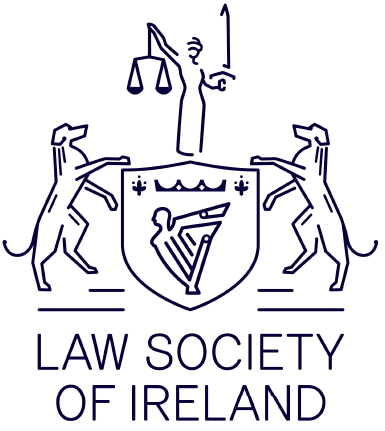Despite the high levels of professionalism in our both private health services and the HSE, cancer cases can be missed, misdiagnosed, and cancer treatment can fall below the standards of care which are to be expected.
Cancer negligence is a form of medical negligence where a medical practitioner fails in the duty of care to you and your condition is not treated or incorrectly treated leading to illness or a worsening of your existing condition or even death.
Where this occurs, you may be eligible to claim compensation for the pain and suffering you have endured, as well as any financial effects of the substandard treatment such as additional medical bills or loss of earnings.
Table of content
Cancer treatment
The Irish Cancer Society estimates that 42,000 people get a cancer diagnosis in Ireland every year and that cancer is responsible for 30% of deaths each year in Ireland.
The most prevalent forms of cancer in Ireland are skin cancer, prostate cancer, breast cancer, lung cancer, and bowel cancer. There are national screening programmes for cervical, breast, and bowel cancer.
Cancer diagnosis and treatments are also developing and becoming more effective which has improved the survival rates for many types of cancer.
However, cancer negligence can mean that your cancer has spread or that it will require more intensive treatment than it might have done had it been diagnosed earlier.
What is cancer negligence?
Cancer negligence can result in a death that was premature due to incorrect treatment or a delayed diagnosis that meant that the disease was less treatable than if it had been diagnosed sooner.
Cancer negligence can take the form of cancer misdiagnosis, or delayed diagnosis. Misdiagnosis occurs where there are errors on the diagnosis, treatment, surgery or care of a patient with cancer or there is a failure to diagnose cancer.
Cancer delayed diagnosis means that the cancer is missed, tests may be misinterpreted, or an incorrect diagnosis is made.
Cancer misdiagnosis and delayed diagnosis
Cancer late diagnosis, failure to diagnose cancer. and cancer misdiagnosis can lead to a worsening of your illness, a poorer prognosis or outcome of treatment, and longer and more invasive treatment than if the cancer had been diagnosed at an early stage and appropriately treated.
If you present to your GP, to A&E, or to any hospital with symptoms of cancer, then you should be referred for follow up checks. Failure to do this can lead to a delayed diagnosis which may cause a worsening of your illness and a more negative prognosis for your cancer.
All types of cancer treatment such as surgery, radiotherapy, or chemotherapy as well as laboratory tests and scans can all be subject to error and breaches of professional duty of care.
Common cancer negligence claims
Cancer negligence and cancer misdiagnosis can arise in the following circumstances:
Compensation for cancer negligence
Anyone who has experienced substandard cancer care which has caused them to become ill, led to a worse outcome for their treatment, or their treatment less effective may be able to make a cancer negligence claim for compensation.
You can make a claim for your pain and suffering, any decrease in your quality of life, and any financial repercussions that have arisen from cancer medical negligence.
Financial effects of cancer negligence may include any loss of or reduction in earnings you have experienced as a result of substandard cancer treatment or delayed diagnosis.
Additional medical expenses incurred, and expenses related to transport and accommodation may also be considered in making a cancer negligence claim.
How much compensation could I receive?
All cases vary as your cancer, its diagnosis and treatment, as well as the outcome for you will vary. The effects of the cancer on your life may also vary. You may receive compensation for general damages and special damages.
General damages may be awarded for your pain and suffering as well as any loss of quality of life you experience in the future as a result of cancer negligence.
Special damages may be awarded for the financial impact of the cancer negligence on your life such as loss of earnings and future earnings, additional medical expenses, and the cost of personal care where relevant.
Who can be at fault for cancer negligence?
Although the vast majority of HSE and private healthcare staff work hard and provide excellent cancer care, busy practices and hospitals and the demands of practice can mean that lapses occur.
As there are so many forms of cancer negligence, any professional involved in your cancer care can be at fault as can the organisation of the surgery or hospital where, for example, your medical records are incorrectly stored or not updated correctly.
Health professionals such as GPS, nurses, consultants, A&E staff, radiographers. anaesthetists, and allied healthcare professionals can all, unfortunately, fall short in their duty of care leading to cancer negligence.
How to make a medical negligence claim
Your first step is to consult an experienced and sympathetic cancer negligence solicitor. Your solicitor will go over all of the events with you and will acquire copies of your medical records.
Your case, including all medical records, will be reviewed by an independent medical expert who will seek to establish negligence and causation in your case.
A barrister will be instructed by your solicitor to draft a Personal Injury Summons which will be served on the hospital or medical professional involved. Court proceedings involving medical negligence would usually be heard in the High Court.
A Letter of Claim will be sent to the medical professional or hospital involved in your case.
It may well be the case that the defendant will settle without having to go to Court. Only 3% of medical negligence cases are settled in the High Court.
Fatal cancer negligence
Unfortunately, cancer negligence may lead to the untimely death of a patient. Where there is cancer misdiagnosis or delayed diagnosis the prognosis of the patient may be worsened.
If a family member has died due to cancer negligence, a claim for compensation will not bring them back but it may alleviate the psychological stresses and financial stresses the result from their premature death.
A fatal injury claim may also be the only way to find answers about how their cancer medical care led to their death.
A fatal injury claim can be made by a Personal Representative up to 2 years after your loved one’s date of death or the ‘date of knowledge’ that cancer negligence led to their death.
How long do you have to make a cancer negligence claim ?
The time limit for making a claim for cancer negligence is two years from the negligence.
The date may be taken as the ‘date of knowledge’ where the effects of the negligence only become apparent later on in your treatment. In this case, you have two years from the ‘date of knowledge’ to make a claim for cancer negligence.
Where a child has been the victim of negligence, an adult (usually a parent) can make a claim on their behalf within two years or when the child reaches 18, they have a two years time limit to make a claim on their own behalf.
Make a claim today
O’Brien and Company Solicitors have extensive experience of medical negligence claims and personal injury claims, including cancer negligence claims and cancer misdiagnosis claims, and and will assist you and navigate the claims process on your behalf to obtain compensation for you.
The legal expertise of our specialist cancer negligence solicitor team will advise and support you in making a successful compensation claim.
If you have been a victim of cancer negligence or if a loved one has passed away following substandard cancer care, contact us today for further information and an initial consultation so that we can assist you to get the compensation you deserve.
Contact us now
in confidence.
O’Brien & Company Solicitors has a wealth of experience and a history of success in personal injury and medical negligence cases.
We pride ourselves on achieving the best results for our clients whilst at the same time making everything as straightforward and clear for you as possible.


